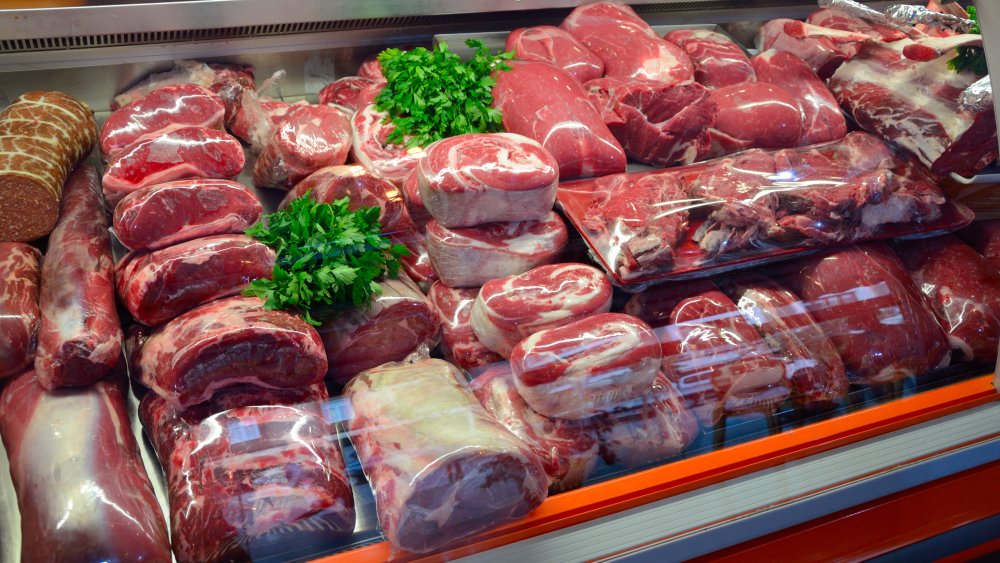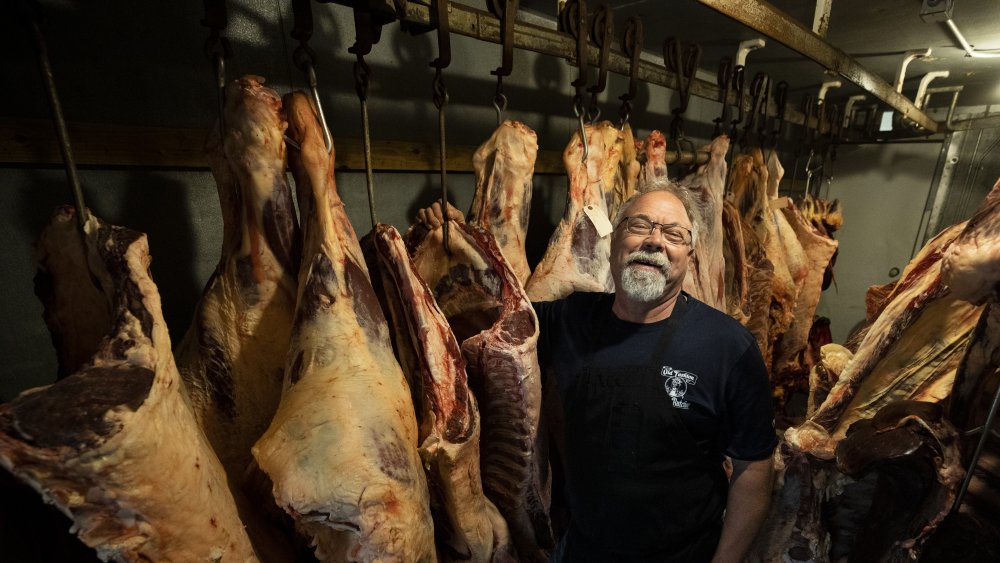The Real Reason Meat Prices Are Plummeting Right Now
You might have noticed a change during your last trip to the grocery. You might have thought you were imagining things, but industry experts are confirming what you thought might be too good to be true at first: meat prices are finally climbing down from their highs.
Meat processors had been promising that shortages that had come with the pandemic wouldn't last and that supplies would eventually stabilize. The Wall Street Journal says there are signs that that moment has finally come, and retailers like SpartanNash have begun promoting low-priced ground beef, ribs, and sirloin steaks. The chain's chief merchandising and marketing officer, Lori Raya says: "The supply is plentiful right now. Barring any outbreaks, we're feeling pretty good."
As a result, some of the meats that might have been downright unaffordable between April and August are well within reach once again. In some instances, they are even cheaper today than their pre-pandemic price. Eat This, Not That! says during the first week of September, prices for prime rib were down 11 percent from where they were at the beginning of 2020. The price of New York strip steaks had dropped about 8 percent, and beef brisket prices were 20 percent lower. And if you're not into your beef, prices for chicken leg quarters are down about 40 percent from where they were in 2019.
Consumers started turning to plant-based proteins during the pandemic
The drop in meat prices comes at a time when we have more choices as consumers, about the kinds of protein we might want to consume. The New York Times says that during the April to May period of this year, or about the time when meat prices were skyrocketing due to meat plant shutdowns, sales of plant-based meat substitutes had spiked 35 percent. And even before cost had become a factor the decision to shift to a plant-based diet, some Americans had already been looking into meat substitutes as a way to fight climate change.
As Jay Toscano, executive vice president for tofu producer Pulmuone brands put it to The Washington Post: "We've struggled for years to figure out how to get more tofu into people's mouths in the US. In the past, if we'd had 2 percent growth in sales from one year to the next, we'd be high-fiving each other. This year we're seeing 20 percent growth, and we could easily have grown 50 percent if we could keep up with production." Plant-based meat producer Beyond Meat saw record sales during the first quarter of this year as well.
Lower prices are hurting farmers even more
But what looks like good news for consumers and plant-based meat manufacturers isn't the same for livestock and poultry farmers, whose cattle and chickens were stuck in limbo when the meat processing plants shut down. In August, Tyson Foods estimated that 1 million cattle and 3 million hogs are backed up on farms and feedlots still, and farmers are trying to get rid of that backlog. One farmer says he has 1,000 heads of cattle that have spent extra weeks eating, and they've gained about 100 pounds each as a result (via Wall Street Journal).
A change to the way the cattle are raised and fed has a knock-on effect on the way the meat is cut up and sold. The marbling triggered by the weight gain has turned cattle into sources of prime beef, which is the highest USDA grade. And that means prime steaks, as a result, are cheaper. In all, the upheavals are expected to hurt meat producers' bottom line, and the industry could lose as much as $5.1 billion or the equivalent of 8 percent this year. President Donald Trump has announced $13 billion in aid for farmers who have been affected by the pandemic; we hope it helps keep farmers and food producers going.


